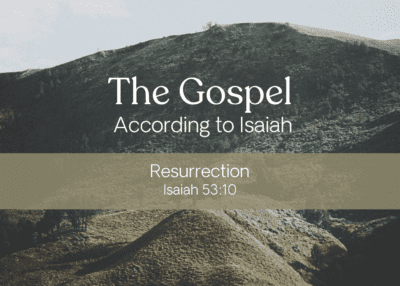God’s love has been poured into our hearts through the Holy Spirit who has been given to us. (Romans 5:5)
Think with me for a moment about the love of God.
The quality of any love directly relates to the capacity of the being who gives it. Do insects experience love? It seems reasonable to say that they do. Think about bees working together in cooperation in a hive. There is relationship there and community.
What about birds? “Birds of a feather flock together.” Look at birds in migration or even Canadian geese walking slowly across the road, and you have obvious relationship.
Move higher in the created order and think about cats and dogs. Do cats have a capacity to love? Clearly they do. What about dogs? The loyalty and affection of a dog is a special gift in the lives of millions of people.
Whether cats are more loving than dogs is a discussion that I refuse to enter! All I am affirming is that the capacity of affection is given to cats and dogs, and that it is given to them in a higher degree than birds or bees.
What about people? Here we move into a different realm from the animal kingdom. We are made in the image of God. The capacity of love is greater by far than the capacity given to insects, birds, cats, or dogs.
What then are we to say about the love of God? What is the capacity of his love? God is eternal in his being, unlimited in his power, infinite in his knowledge. The capacity of God is beyond anything we can fathom on earth, and it is more than the angels can fathom in heaven.
The love of God is beyond our ability to fully grasp, which is why we will be lost in worship, wonder, love and praise, when the full extent of his love is unfolded to us in heaven.
The love of God is greater by far than tongue or pen can ever tell;
It goes beyond the highest star, and reaches to the lowest hell;Could we with ink the ocean fill, and were the skies of parchment made,
Were every stalk on earth a quill, and every man a scribe by trade;
To write the love of God above would drain the ocean dry;
Nor could the scroll contain the whole, though stretched from sky to sky.[i]
No wonder the apostle Paul prays for Christian believers like us that we may “have strength to comprehend with all the saints what is the breadth and length and depth and height of the love of God. And to know the love of Christ that surpasses knowledge” (Eph. 3:18).
How you can know that God loves you
God shows his love for us in that while we were still sinners, Christ died for us. (Romans 5:8)
When you ask, “How can I know that God loves me?” this is where you go for the answer. God shows his love. God demonstrates his love. We might even say, “God proves his love.” How? In this: Christ died for us.
We are looking at objective historical data – something happened. How can I know that God loves me? Christ died. He died for me. This is how it is shown. This is how it is demonstrated. This is the proof of God’s love: Christ did this! And he did it for me!
It’s really important that you are able to answer the question: “How can I know that God loves me?” especially when you are facing traumatic events in your life.
When you face a trauma, you may find that your emotions shut down. You can’t feel things as you normally would. When you’re in that place, you will find yourself saying, “I cannot feel the love of God.”
Of course you can’t. Your emotional system has been hit so hard that you can’t feel anything as you normally would. Yet you still need to be able to answer the question “How do I know that God loves me?” This is why the objective, historical revelation of the love of God is so important.
You may find yourself saying: “I can’t feel a thing. I come to church and I feel numb. But I know that God loves me, because he sent his Son to die for me. Christ gave himself for me. And this is love, even when I cannot feel a thing.”
That is of huge importance. But there’s more here…
The love of God is more than a truth to be believed; it is a gift to be enjoyed
God’s love has been poured into our hearts through the Holy Spirit who has been given to us. (Romans 5:5)
Notice how these two complement each other so beautifully in giving us a full picture of the love of God: The love of God is universal in its scope and it is personal in its application. The love of God was proved back at the cross, and it is experienced now in our hearts.
The love of God was poured out at the cross by the Son of God, and it is poured into our hearts by the Holy Spirit. I want to enjoy as much of this love as I possibly can this side of heaven. I want to know more of this.
1. The Promise
God’s love has been poured into our hearts through the Holy Spirit who has been given to us. (Romans 5:5)
The love of God is not dribbled, dripped, or sprinkled into our hearts. It is poured! That speaks of an abundance.
Six days before the Passover, when he was about to suffer on the cross for us, Jesus came to the home of Mary and Martha and Lazarus, their brother, whom Jesus had raised from the dead.
This was a home where Jesus was loved. And when he arrived, the three siblings gave a dinner in his honor. How do you say “thank you” to someone who has given you life from the dead? Of course, that is the position of every Christian, isn’t it?
Mary had an idea. She took a pound of expensive ointment, and poured it out on the feet of Jesus, and “The house was filled with the fragrance of the perfume” (Jn. 12:3).
When the perfume is poured out, it gets everywhere! Every corner of the room is affected. Not just the room they were in, the whole house was filled with the fragrance!
That’s a beautiful picture of what happens when the Holy Spirit pours the love of God into the heart of a Christian believer. It gets everywhere. This love can’t be contained in a small corner of your life. When the love of God is poured out by the Spirit, everything is affected.
This is something very wonderful. The love of God, in all of its healing power, permeating every part of your interior life – your thought patterns, your speech, your memories.
How is this possible?
God’s love has been poured into our hearts through the Holy Spirit who has been given to us. (Romans 5:5)
Only God himself can do this. Your pastor can tell you about the love of God, but he does not have the ability to pour this love into your heart. A counsellor can point you to this love, but she cannot pour it into your heart. Only God can do this. You have to go to him for it.
It’s not just that the Holy Spirit can pour the love of God into our hearts, he has done this! God’s love has been poured into our hearts through the Holy Spirit, who has been given to us.
Paul is writing to Christian believers in Rome, and he is saying to them, “Here are two things that are true of you in Christ: 1. The Holy Spirit lives in you and 2. God’s love has been poured out into your hearts.”
These things are true of everyone who is in Christ. Every Christian has tasted something of the love of God. If these things are not true of you, then don’t go around telling yourself that you’re a Christian. There is something wonderful still ahead for you.
But there’s so much more than any of us have tasted. The love of God is greater by far than tongue or pen can ever tell. Think about the vastness of that love being poured into the restricted capacity of our human hearts! We talk about trying to pour a quart into a pint pot. This is like trying to pour the ocean into a thimble!
Surely the question that rises up in the heart of every Christian is, “How can I receive more?”
2. How We Can Enjoy More of What Is Promised
God’s love has been poured into our hearts through the Holy Spirit who has been given to us. (Romans 5:5)
The obvious question is: “Who are the people into whose hearts this love of God is poured?” The more we reflect the marks of these people, the more we will experience what is promised to them.
Who are the people who enjoy this outpouring of God’s love in their hearts? You can see the answer for yourself just by looking at the verse that came before and after this great promise in Romans 5:5.
Who are the people being described here? Who are the “we”? Who are the “our” into whose hearts the love of God is poured? Who are the “us” to whom the Holy Spirit is given?
People Into Whose Hearts the Love of God Is Poured Are:
a. People who exercise faith
Therefore, since we have been justified by faith, we have peace with God through our Lord Jesus Christ. (Romans 5:1)
Who are the “we” that Paul is referring to here? It is the people who exercise faith. We have been justified by faith.
The more I exercise faith, the more I will experience God’s love: “God’s love has been poured into our hearts through the Holy Spirit who has been given to us” (Rom. 5:5). The less that I exercise faith, the more restricted my heart will become.
Faith is more than saying you believe. It is actually believing. The Christian life is lived by faith, “Christ… lives in me. And the life I now live in the flesh I live by faith in the Son of God” (Gal. 2:20).
No one can believe God’s truth and Satan’s lies at the same time. When you are in Christ, God says that you are justified. But Satan says, “How can that possibly be? Look at you. You’re a mess! You’re full of contradictions! How can God possibly be at peace with you?”
Who are you going to believe? Living by faith is about believing God over all the other voices around you.
There’s what the world says you are. There’s what your own heart says you are. There’s what Satan, the great accuser, says you are. Then there is what God says you are. Faith believes God over all the other voices.
Don’t think of faith as something you did a long time ago. Walking by faith is exercising faith every day.
b. People who persevere through suffering
We rejoice in our sufferings, knowing that suffering produces endurance, and endurance produces character, and character produces hope. (Romans 5:3-4)
This is striking because our natural instinct is to say, “If God really loved me, why would I have to suffer like this?”
Here are people who know what it is to suffer. This is very significant because the promises of God are often hammered out on the anvil of painful experience.
These people persevere through their suffering: “We rejoice in our sufferings knowing that suffering produces endurance” (Rom. 5:3). This does not mean that we should seek suffering. Enough of it will come into our lives without our doing that. But it does mean that we should use it.
Here is the principle: When a rose is crushed, a beautiful perfume is released. We find joy in our sufferings because we know that this is the place where we may hope to taste more of the love of God poured out into our hearts by the Holy Spirit.
c. People who own their need for Jesus
For while we were still weak, at the right time Christ died for the ungodly… but God shows his love for us in that while we were still sinners, Christ died for us. (Romans 5:6, 8)
The “we” (in verse 6) is the “us” (verse 8) into whose hearts the love of God is poured (verse 5).
People are normally chosen on the basis of ability, but here the apostles describe what we were by nature, and he uses three words
Weak: While we were still weak. (Rom. 5:6)
When employers make hiring decisions, they conduct interviews to discern a person’s abilities. Generally, people with the greatest abilities get chosen. But here God’s love is poured out on people who know that they do not have, in themselves, the ability to do what he has called them to do.
Ungodly: Christ died for the ungodly. (Rom. 5:6)
A godly person is a person who is for God. That wasn’t us! We were for ourselves. We were ungodly. If we had an appearance of godliness, it was driven by self-interest rather than love (2 Tim. 3:5), “I can get something out of this.” God was for us long before we were ever for him.
Sinners: While we were still sinners, Christ died for us. (Rom. 5:8)
“Sinners” means that we are rebels; we fall short; we are off the mark; we are guilty and without excuse before God. If you were to take away Jesus Christ, and all that has come to us through him, all that would be left would be a weak, ungodly sinner.
Here’s the amazing thing: God saw us as we were! God had compassion on us. He sent his Son for us. God demonstrates his love for us in this, that when we were in this wretched condition, Christ died for us.
The Holy Spirit will not pour the love of God into the heart of a self-righteous person. It just doesn’t happen. If you think yourself godly, righteous, and strong, you don’t get to savor his love. If you feel that God owes you, you don’t even get to taste it.
But the ones who own their sinful condition, the ones who recognize their ongoing need of Christ, do. It is into their hearts that the love of God is poured out by the Holy Spirit.
d. People who embrace Jesus Christ
For if while we were enemies we were reconciled to God by the death of his Son, much more, now that we are reconciled, shall we be saved by his life. (Romans 5:10)
What a marvelous statement about the Lord Jesus Christ! Here we read about the death of God’s Son (on the cross) for our reconciliation, and the life of God’s Son (through the resurrection) for our salvation.
Notice what Paul is saying. We were reconciled to God by the death of his Son! In Christ we are forgiven, the past is wiped clean, and we are brought into a new relationship with God. All of this flows from the cross of Jesus.
We are reconciled by the death of his Son. But it doesn’t end there. Now that we are reconciled, how much more shall we be saved by his life. Reconciled by his death! Saved by his life!
Every Christian knows that when our sins are forgiven, we find ourselves engaged in a great struggle against the sins that remain in us. Temptation draws us, and we often find ourselves failing, “When will this battle ever be over?”
We have a risen Savior. By his power we will be saved, not only from sin’s condemnation, but also from sin itself. When Christ brings you home there will not be a trace of sin in you or around you. He will not let you go. He will bring you all the way home.
[i] Frederick M. Lehman, from the hymn “The Love of God,” 1917
[elementor-template id=”128476″]



